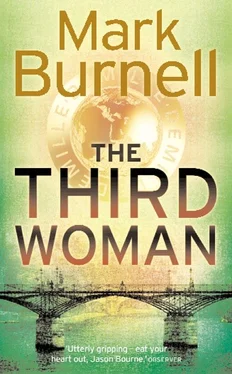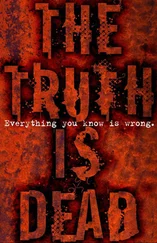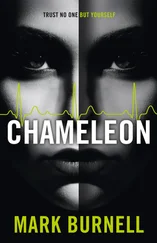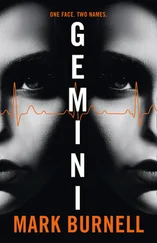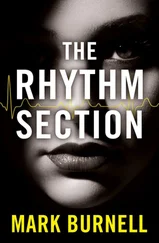1 ...8 9 10 12 13 14 ...24 Adler took her upstairs to the apartment over the shop where he and his wife had lived for almost twenty years. He lit a gas ring for a pan of water and scooped ground coffee into a cafetière. There was a soft pack of Gauloises on the window-ledge. He tapped one out of the tear, offered it to her, then slipped it between his lips when she declined.
‘Is Sylvie here?’
‘Still asleep.’ He bent down to the ring of blue flame, nudging the cigarette tip into it, shreds of loose tobacco flaring bright orange. ‘She’ll be happy to see you when she gets up.’
‘I doubt it. That’s the reason I’m here, Claude. I’ve got bad news.’
Adler took his time standing. ‘Have you seen the TV? It seems to be the day for bad news.’
‘It is. Jacob and Miriam are dead.’
He froze. ‘Both?’
Stephanie nodded.
At their age, one was to be expected. Followed soon after, perhaps, by the other. But both together?
‘When?’
‘Last night.’
‘How?’
‘Violently.’
He began to shake his head gently. ‘It can’t be true.’
‘It is true.’
‘How do you know?’
‘I saw the police. The ambulances …’
‘You were there?’
‘Afterwards, yes.’
‘Did you see them ?’
Stephanie shook her head.
‘Then perhaps …’
‘Trust me, Claude. They’re dead.’
He wanted to protest but couldn’t because he believed her. Even though she hadn’t seen the bodies. Even though he didn’t know her well enough to know what she did. Not exactly, anyway.
‘Who did it?’
‘I don’t know.’
He thought about that for a while. ‘So why are you here?’
‘Because I’m supposed to be dead too.’
Adler refilled their cups; hot milk first, then coffee like crude oil, introduced over the back of a spoon, a ritual repeated many times daily. Like lighting a cigarette. Which he now did for the fourth time since her arrival, the crushed stubs gathering on a pale yellow saucer.
Now that he’d absorbed the initial shock, Adler was reminiscing. Secondhand history, as related to him by Furst: the pipeline pumping Jewish refugees to safety; the false document factory he’d established in Montmartre; 14 June 1940, the day the Nazis occupied Paris; smuggling Miriam to Lisbon via Spain in the autumn of 1941; forging documents for the Resistance and then SOE. And finally, betrayal, interrogation, Auschwitz.
Adler scratched a jaw of stubble, some black, some silver. ‘He always said he was lucky to live. Listening to him tell it, I was never so sure.’ He stirred sugar into his coffee. ‘You survive something like that, the least you expect is to be left alone to die of natural causes. Fuck it, he was nearly ninety.’
‘You’re right.’
‘You know what I admired most about him?’
‘What?’
He drew on his cigarette and then exhaled over the tip. ‘That it never occurred to him to leave. From 1939 on, he could’ve run. But he didn’t. He chose to stay behind, to create false documents to help others escape. He knew the risks better than most. Yet even when they got Miriam out, it never crossed his mind to go with her.’
‘That was the kind of man he was. Silently courageous. Understated.’
‘True. He was a man who believed in community. His community.’
‘Talking of which, did Jacob ever go back to Sentier?’
Adler stared at her. ‘That’s a blunt question on a morning like this.’
‘That’s why I’m asking it, Claude.’
He shrugged. ‘Not so much, I don’t think. Not since he sold the shop.’
‘I saw it yesterday.’
‘What?’
‘The shop. In Passage du Caire. Part of the sign is still above the entrance. At least, it was. It’s not any more.’
Adler’s jaw dropped. ‘You were there ?’
‘Moments before the explosion, yes.’
‘My God … why ?’
‘To see Jacob. He called me the night before last and asked me to come to Paris. He said it was important. He wanted to meet at La Béatrice. I turned up. He didn’t.’
‘At La Béatrice? That used to be his favourite place.’
‘I know.’
‘A coincidence?’
‘Your guess is as good as mine.’
Adler’s gaze drifted out of the window. ‘We were up all night watching the news. Twelve dead, fifty injured. We were wondering who we’d know.’ He looked her up and down. ‘Are you okay?’
‘I’m fine.’
‘You’d already left?’
‘No. I was just lucky. Everyone around me was dead or injured. I hardly got a scratch.’
‘What about Jacob?’
‘I told you. He never turned up. He died later. At their apartment.’
‘With Miriam.’
‘Yes.’
‘You think there’s a connection?’
‘I don’t want to. But it’s hard not to. When did you last see him?’
‘Thursday. Sylvie and I went over to their place and we went to the street market on boulevard de Belleville. Lately, it’s something we’ve been doing almost every week. The market is on Thursday and Friday mornings. After it, we have lunch. Usually at old Goldenberg’s place – you know it? He and Jacob were friends.’
She shook her head.
‘On rue de Tourtille. Great service, shit food. Jacob and Miriam have been going there since it opened, back in the Seventies. Jacob always used to say he only started enjoying it about five years ago when his taste buds went. He used to lean across the table when Goldenberg was hovering and he’d say to me, “Claude, there are two things that give me pleasure when I’m here. Not tasting the food and watching your face. Every mouthful is a masterpiece.” That was his big joke. Goldenberg has a sign in the front window: every mouthful is a masterpiece .’
Stephanie tried to muster a smile. ‘Did you always go over to see him? Or did he come here?’
‘Usually, we went there. When he sold the business he began to slow down. Recently, he’d become … fragile .’
‘At his age, he was entitled to.’
‘I agree with you. But he wouldn’t have.’
‘You didn’t notice anything on Thursday? He didn’t seem upset or preoccupied?’
‘Nothing like that, no.’
‘What about the last few weeks?’
‘No.’
‘Does it surprise you that he would have arranged a meeting with me at La Béatrice?’
‘Frankly, yes. He was fond of you. They both were. I would have expected him to invite you to their home. That was their way.’
‘That’s what I thought.’
‘How could he be connected to what happened in Sentier?’
‘I don’t know.’
‘What are you going to do?’
‘I can’t tell yet. I guess I’ll take a look at his place. After that … who knows?’
‘How will you get in?’
‘I’ll find a way.’
Adler stood up and shuffled past her into the hall. She heard the scrape of a drawer. When he returned he was holding a set of keys.
‘The one with the plastic clip is the top lock, the other one does the main lock. The number for the building is 1845.’
‘Thank you.’
‘It was Miriam’s idea. In case they needed help.’
Stephanie took the keys and put them into the pocket of her denim jacket.
Adler said, ‘Is there something I can do, Petra? I’d like to help.’
‘Then forget this conversation. In fact, forget I was even here.’
I’m sitting at a small circular table beside the window. Outside, the traffic thickens along rue de Rivoli. The street shimmers in the wintry light of early morning. Silver rain streaks the glass. I order some breakfast from the waiter and then spread the newspapers across the table; Le Monde, Libération, International Herald Tribune. The bomb dominates the front pages of the two French papers and shares the lead in the Tribune.
Читать дальше
